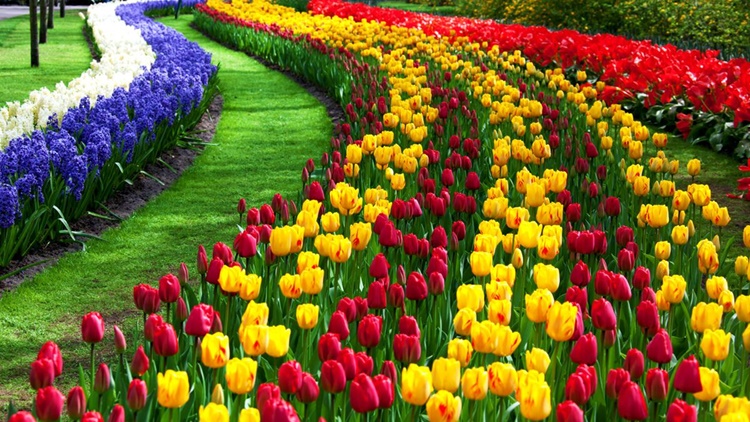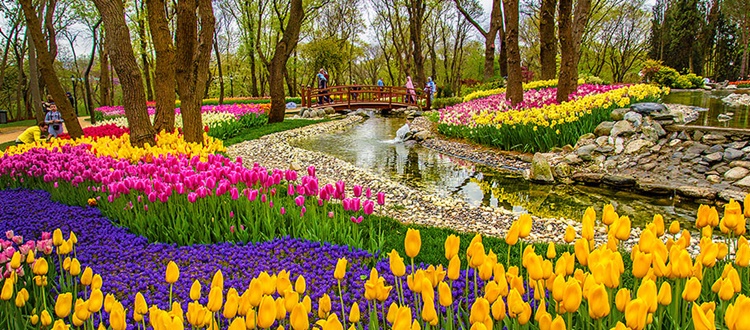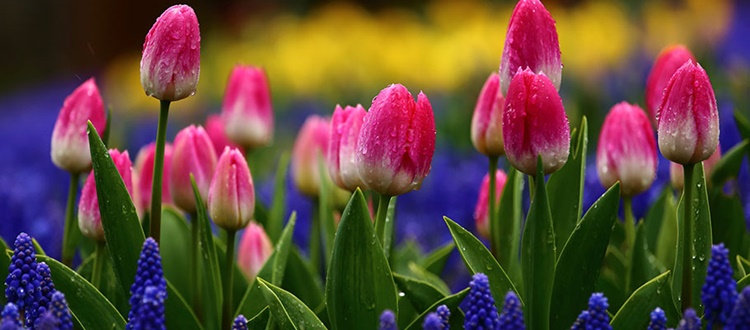Turkey’s gift to the world: Tulips

Taken from the Turkic homeland in Central Asia’s Pamir Mountains to Anatolia and spread worldwide, tulips continue to be the main theme for spring events.
Tulips were brought by Turks from Central Asia to Anatolia during the Turkic migration and have been used in decorative patterns since the 12th century. The plant also became a main theme in art, poems, stories, handicrafts and miniature crafts and its pattern was imprinted on mosque decorations, carpets, war helmets, robes, skirts and money.
The symbol of Turkey and Istanbul, the tulip was brought to Europe in the second half of the 15th century. Tulip bulbs sent by the Austro-Hungarian Empire’s ambassador in Istanbul, Ogier Ghislain de Busbecq, who was also a botanist, first arrived in Vienna and then in the Netherlands.

Becoming popular in the Netherlands, the tulip made its way to the Canadian capital Ottawa and came to be known worldwide. In Canada, the Netherlands and Japan, tulip festivals are held every year.
Tulips sold for price of a house in Amsterdam
Professor Ekrem Bugra Ekinci, a Turkish academic at Istanbul-based Marmara University, said people started to dote on tulips in the era of Ottoman Emperor Kanuni Sultan Suleyman, commonly known as Suleiman the Magnificent in the West. “Hundreds of kinds of tulips were produced. Tulip gardens became popular. Poems describing tulips were written. An academy for caring for tulips was founded as well,” Ekinci said.
“Tulips spread from Anatolia to the Netherlands. Multicolored tulips were much preferred. They were sold for the price of a house in Amsterdam.”

He added that between 1634 and 1637, a tulip mania was seen in Europe, and French writer Alexandre Dumas’ The Black Tulip novel is based on this term.
Netherlands earns €1.5 billion per year by selling tulips, bulbs
Yasar Yenigun, a Turkish documentary director who tells of the tulip’s historic travel in the documentary ‘Tulip: Light of East’, said the tulip is in every field of traditional Ottoman art. He said the tulip pattern has been largely used in mosque decorations. But Yenigun said the plant also became an important commodity in trade. “Today, the Netherlands earns €1.5 billion a year by selling the tulip – the current symbol of the country – as a plant and its bulbs to every part of the world.”
 Hot-Affiliates Reklamları Bu panoda reklam ver. Source: NationalTurk
Hot-Affiliates Reklamları Bu panoda reklam ver. Source: NationalTurk
